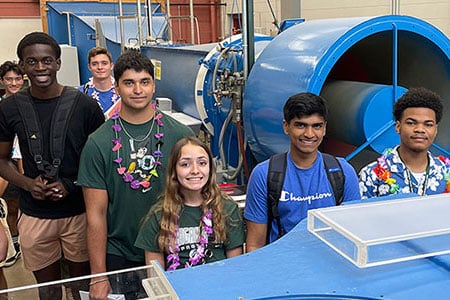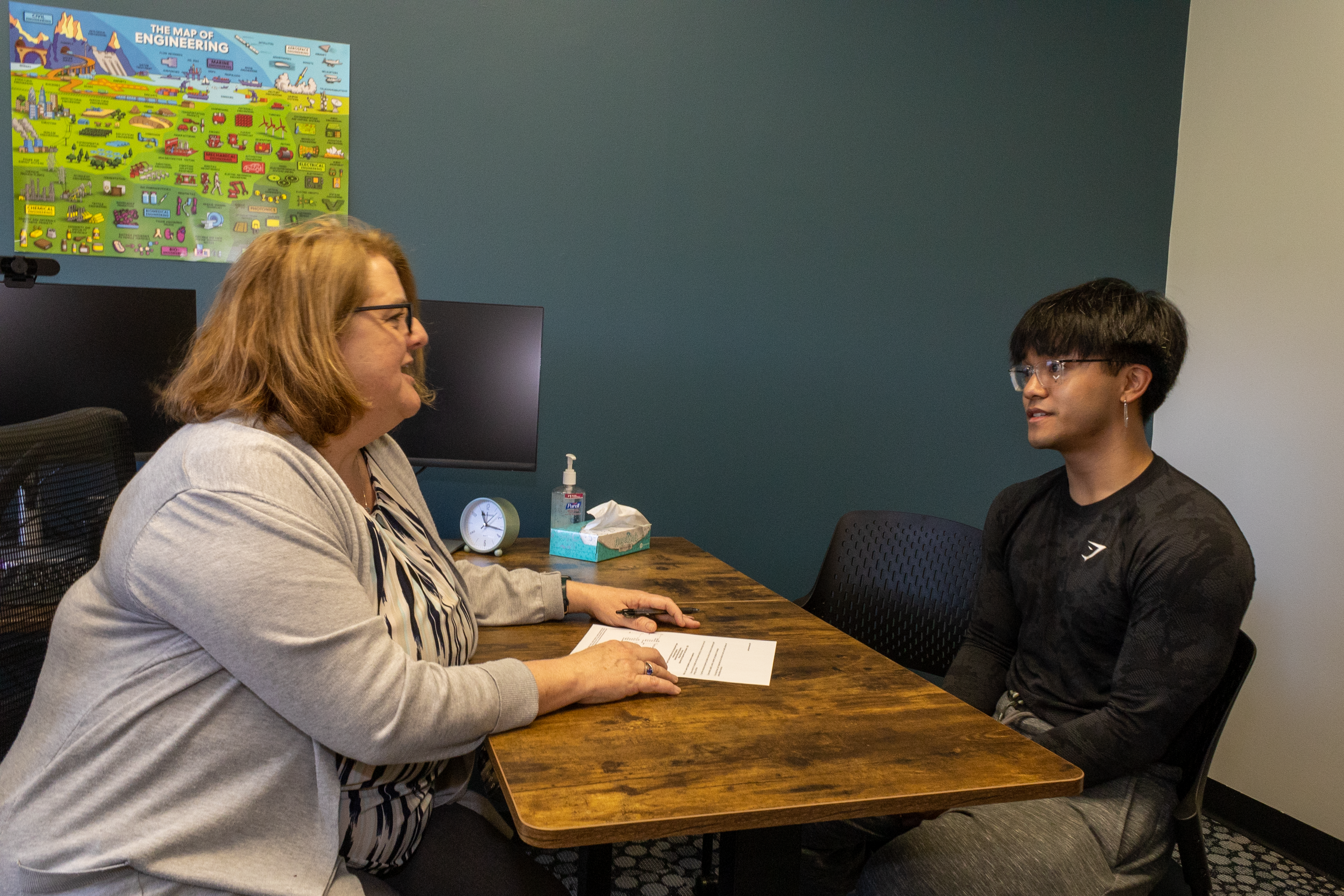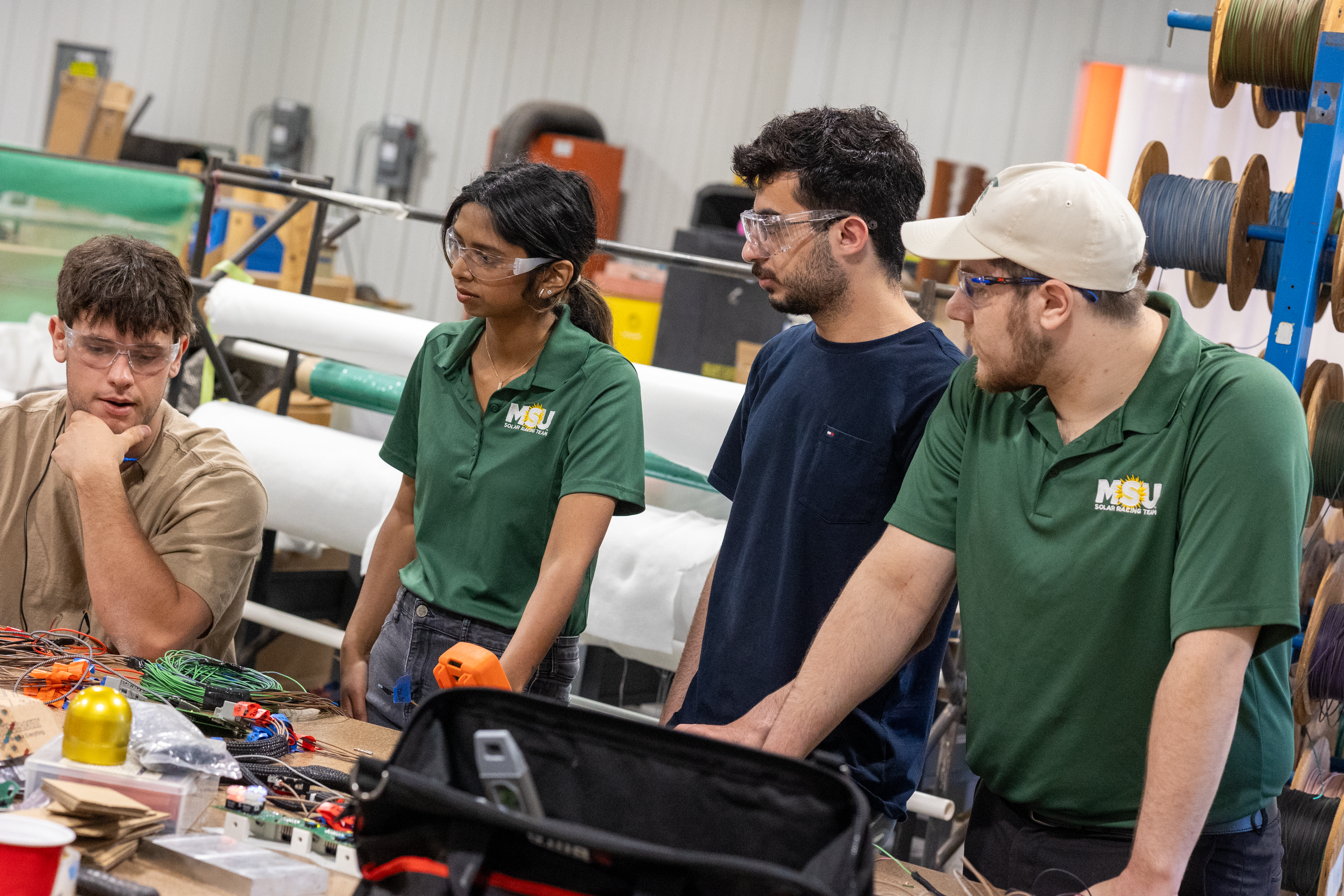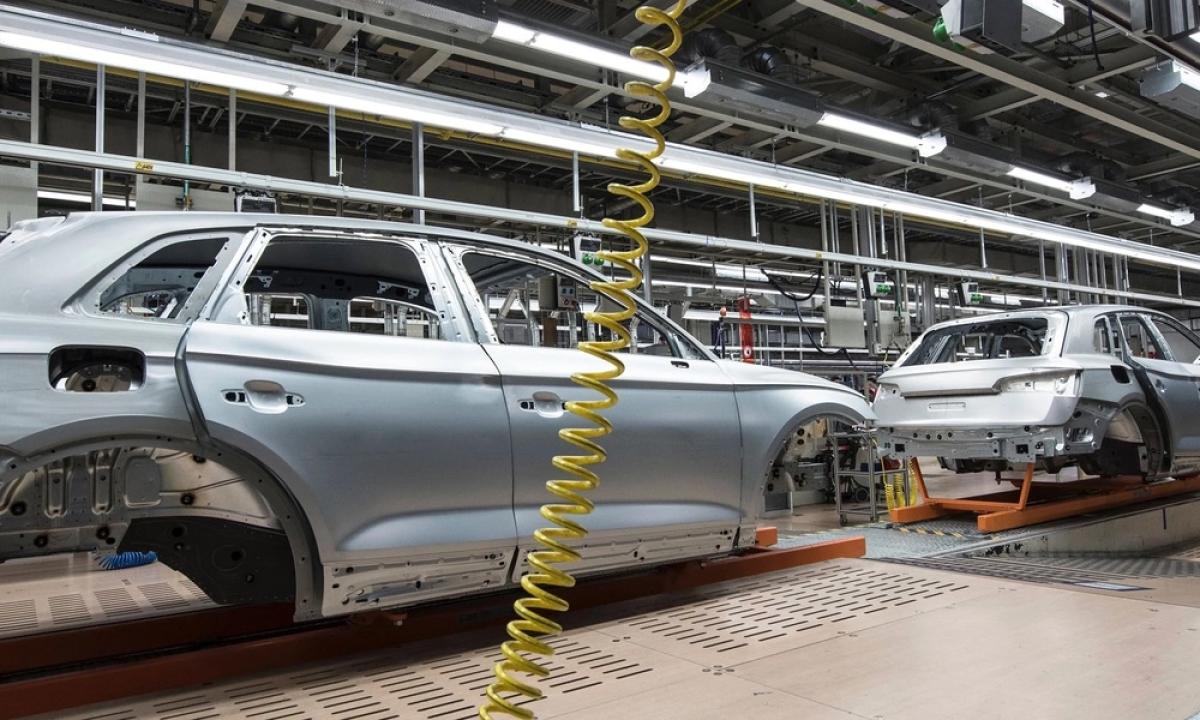
For most Michiganders, a successful state means more jobs, vibrant small businesses and industry-leading innovation in Michigan’s key sectors. Making that vision a reality takes collaboration, and Michigan State University has been a powerful partner.
Spartan researchers from across the university are helping automotive manufacturers adapt to electric vehicles, supporting Michigan farmers facing workforce shortages and giving communities tools to spark economic growth. Their work is driven by partnership with businesses, nonprofits and government agencies across the state. And the university as a whole is its own economic driver — every dollar invested in MSU returns $17 to Michigan’s economy.
Supporting Michigan’s automotive supply chain
The automotive industry is changing fast and many automakers struggle to keep pace. That’s why MSU and the University of Michigan teamed up — along with the Michigan Department of Labor and Opportunity and the Motor and Equipment Manufacturers Association — to help small- and medium-sized auto manufacturers in Michigan make the switch to electric vehicle parts and diversify their product lines.
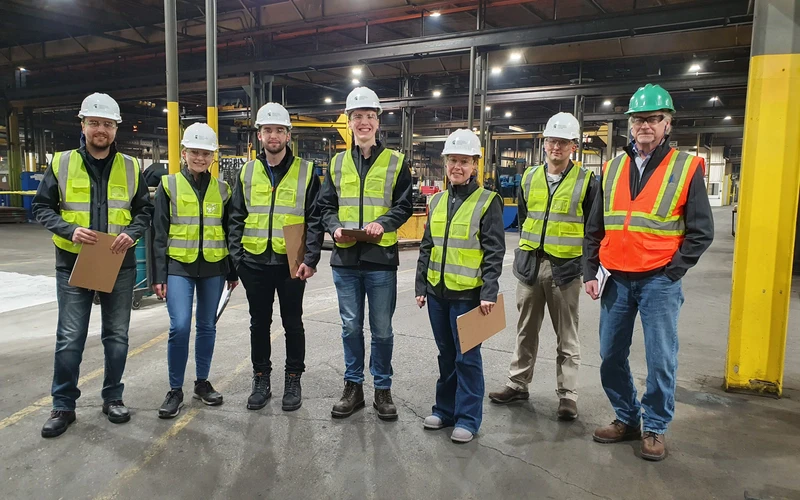
This project, which is funded through the U.S. Department of Energy and lasts through 2026, will create a playbook for automakers filled with practical advice on new business opportunities, hiring and training workers, and finding funding to grow. The guide will be built using ideas from scientists, engineers and business leaders — and tested out with real companies to make sure it works. The effort is aligned with federal priorities to onshore manufacturing and supply chains to support the future of mobility and the U.S. automotive industry.
MSU Mobility and U-M’s battery experts will handle the technical side, and U-M will also offer training to help workers prepare for jobs in the electric vehicle world. They’re especially focused on supporting businesses in communities that don’t often get these kinds of resources.
“Thanks to this grant, businesses will have a key resource with critical info to help them embrace the future of electrification and the changing auto industry,” says Annick Anctil, assistant director of MSU’s Industrial Training and Assessment Center, which helps small- and medium-sized U.S. manufacturers and commercial buildings save energy, improve productivity and reduce waste by providing no-cost technical assessments conducted by a team of students and faculty.
The program will start small, working with a handful of companies before expanding. The hope is to create something that can help businesses across Michigan and maybe even beyond.
Leaders from both schools agree this project will help keep Michigan strong in the auto industry by giving local businesses the tools they need to succeed with electric cars and protect jobs.
By connecting technical innovation with real-world business strategies and workforce support, we’re helping to ensure that Michigan remains the engine of American mobility for generations to come,” says Judd Herzer, director of MSU Mobility.
Read more about the MSU Industrial Training and Assessment Center.
Read more about this MSU and U-M collaboration.
Original story by Alex Tekip courtesy of MSUToday
MSU College of Engineering Media and Public Relations page
